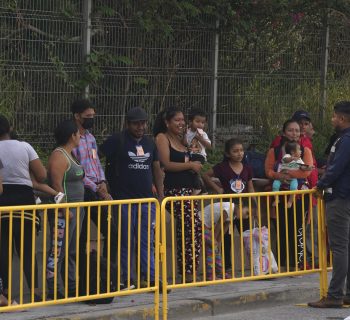By: AILA ~ June 19, 2020
On June 18, 2020, the U.S. Supreme Court ruled that DHS’s decision to rescind the Deferred Action for Childhood Arrivals (DACA) program was arbitrary and capricious under the Administrative Procedures Act. This practice alert explains the immediate impact of that decision and thoughts about the next steps as we look ahead to the 2020 election.
Background
On September 5, 2017, the Trump Administration rescinded the DACA program in a memorandum issued by then-acting Secretary Elaine Duke. Following the rescission, multiple lawsuits were filed challenging the termination, and several courts issued injunctive orders directing the government to partially maintain the DACA program. For more information on these legal challenges and a thorough discussion of DACA application processing under the court orders, see our previous practice, Filing DACA Applications in the Wake of Federal Court Rulings and our litigation tracking page, Documents Related to DHS v. Regents of the University of California. On June 28, 2019, the Supreme Court consolidated and granted certiorari in several of these cases. It heard oral argument on November 12, 2019.
On June 18, 2020 the Supreme Court blocked the government’s attempt to terminate DACA and remanded the case for further consideration. The 5 to 4 majority opinion issued by Chief Justice John G. Roberts, Jr., ruled, as a threshold matter, that the Court had jurisdiction to review DHS’s final decision to rescind DACA under the APA. Turning to the merits, the majority ruled that DHS’s rescission violated the APA as an arbitrary and capricious final agency action because the agency failed to consider “important aspects of the problem before the agency.” Specifically, the Court concluded that DHS failed to consider whether to continue only the deferred action part of the DACA program and that “omission alone renders [the decision] arbitrary and capricious.” In addition, the Court found that DHS failed to address the considerable reliance interests created by the DACA program, such as the impact on Dreamers and their families, if the agency terminated DACA.
Importantly, Justice Roberts noted that the parties agreed that DHS may rescind DACA and emphasized that the court is not deciding whether DACA or its rescission are “sound policies.” Ultimately, the Court rested its decision on well-settled principles rooted in government accountability as codified in the APA: the agency failed to provide a reasoned explanation for its action. Accordingly, the Court remanded the cases for DHS to “consider the problem anew.”
Impact of the Supreme Court Decision on DACA Filings
Under the SCOTUS decision, USCIS must continue to process the following types of DACA requests (as outlined USCIS guidance in place prior to the Supreme Court ruling):
- People Who Currently Have DACA: Current DACA recipients can file a renewal DACA request.
- People Whose DACA Expired One Year Ago or Less: Recipients whose previous DACA expired one year ago or less may still file a renewal DACA request.
- People Whose DACA Expired More Than One Year Ago: Recipients whose previous DACA expired more than one year ago cannot file a renewal DACA request but may file an initial DACA request.
- People Whose DACA Was Terminated: DACA recipients whose previous DACA was terminated at any point cannot request DACA as a renewal but may file an initial DACA request.
In order to comply with the Court’s order, USCIS will have to publish guidance on processing the following applications that were suspended under prior court orders:
- People Who Have Not Previously Been Granted DACA: The Court’s June 18, 2020 decision requires DHS to maintain the DACA program unless and until DHS follows correct procedure to terminate it. As a result, USCIS should immediately publish guidance on processing new, initial DACA applications.
- Advance Parole Requests: The Court’s June 18, 2020 decision requires DHS to maintain the DACA program unless and until DHS follows correct procedure to terminate it. Because advance parole based on DACA was a part of the 2012 DACA program, USCIS should immediately publish guidance on processing advance parole applications filed by DACA recipients.
Practitioners and their clients may want to consider several factors when deciding whether to submit a new, initial DACA application before guidance is issued, including: 1) the possibility that the administration may issue a new memorandum rescinding DACA before the applicant receives a decision; 2) that – in the absence of guidance – USCIS officers will reject new, initial applications or accept them and deny them; and 3) that USCIS is experiencing significant delays in processing as well as a budget shortfall that may further delay adjudications. Given uncertainty surrounding DHS plans, and also given the state of travel during the COVID-19 pandemic, AILA does not recommend practitioners encourage their clients with DACA to apply for advance parole until DHS weighs in on the issue.
What’s Next?
While the Supreme Court’s decision is an incredible victory, DHS still has authority over the DACA program as well as the fate of the DACA recipients. For now, DHS must continue the program and continue processing DACA applications, but it remains to be seen how it will comply with the Court’s order. The Court’s opinion leaves open the possibility that DHS could attempt to issue a new memorandum rescinding DACA that rectifies the inadequacies in its prior memorandum. Such guidance could come very quickly or could be put on hold until a future point in time, such as after the presidential election in November.
The ultimate responsibility for granting lasting relief for Dreamers, rests not in the hands of the executive branch but that of Congress. The overwhelming majority of Americans (eight out of ten) across the political spectrum want Dreamers to remain in the United States. With such resounding support, AILA urges Congress to delay no longer and pass bipartisan legislation granting Dreamers permanent legal status.
Source: AILA ~ June 19, 2020







